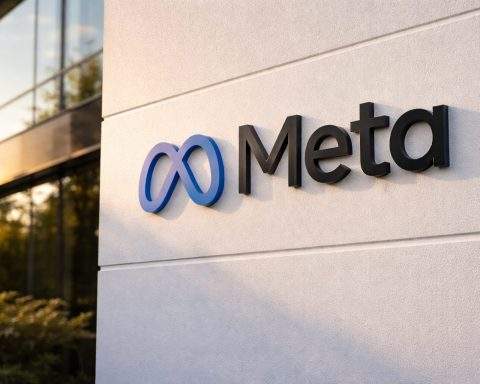26 November 2025
Chancellor Rachel Reeves is hours away from delivering her second Budget – and one idea is dominating the headlines this morning: a clampdown on salary sacrifice for pensions that critics are already calling a “stealth tax” on workers’ retirement savings.
According to multiple briefings, Reeves is expected to cap the amount of pay people can divert into pensions via salary sacrifice while escaping National Insurance, with the limit widely tipped to be set at £2,000 a year.1
The move is part of a wider pensions tax package that could raise more than £3bn a year, the Financial Times has reported, framing it as a “pensions tax raid” designed to plug a large hole in the public finances.2
But as industry warnings grow louder, one uncomfortable detail has emerged: the Treasury does not know how many workers would actually be hit, according to a story in The Telegraph, prompting opposition parties to accuse Reeves of “playing fast and loose” with people’s savings.3
Here’s what we know this morning about the proposed changes, who could lose out, and why pensions experts are sounding the alarm.
What is salary sacrifice – and why does it matter?
Salary sacrifice is a simple idea with big consequences for your tax bill and your pension.
Instead of paying pension contributions from your take‑home pay, you agree to give up part of your gross salary, and your employer pays that amount straight into your pension (often alongside their own contribution).
The key point:
- You don’t pay income tax or National Insurance (NI) on the portion of pay you sacrifice.
- Your employer doesn’t pay NI on it either – and some employers pass part or all of that saving back into your pension.4
It’s widely used for:
- Workplace pensions
- Electric company cars
- Cycle‑to‑work schemes
- Childcare and other benefits
Because it cuts NI for both sides, salary sacrifice has become one of the most powerful remaining tax breaks for ordinary workers trying to build up a decent retirement pot.
Under current rules, people can put up to £60,000 a year into a pension via salary sacrifice, subject to the normal annual allowance and earnings limits.5
What is Rachel Reeves expected to announce today?
While the precise wording of the Budget won’t be known until Reeves stands up in the Commons around 12:30pm, several elements are now consistently appearing across briefings:6
1. A £2,000 cap on NI‑free salary sacrifice
Reports from Sky News, The Guardian and The Independent – and detailed modelling by AJ Bell – all point towards the same core idea:
The first £2,000 a year of pay you sacrifice into a pension would still escape National Insurance. Anything above that would attract NI for both employee and employer.4
You would still get income tax relief on your contributions, but the NI advantage – the main “extra” perk of salary sacrifice – would be sharply limited.
2. A broader pensions “tax raid”
The FT’s reporting suggests the salary sacrifice cap sits inside a wider package of pension tax measures designed to raise over £3bn once fully in place.2
Other options that have been floated in recent days include:
- Flattening higher‑rate pension tax relief so that all savers receive roughly the basic‑rate level.6
- Tweaks to how lump sums and other pension perks are treated for better‑off savers.1
None of these are confirmed until the Chancellor speaks – but together they point clearly at better‑off and highly engaged savers as a key revenue source.
3. Keeping manifesto promises… technically
Labour’s manifesto promised not to raise the headline rates of income tax, NI or VAT. That box remains ticked if Reeves focuses instead on:
- Freezing thresholds (so more income is dragged into tax – the classic “fiscal drag” strategy).1
- Removing or shrinking tax reliefs like salary sacrifice.
That is why many commentators – and some Labour critics – are describing the proposals as a “stealth tax” on work and saving, even if no headline rate actually rises.7
How many workers could be hit? The messy data problem
Here’s where the story gets particularly controversial.
The Telegraph reports that the Treasury cannot say how many workers would be affected by a new cap, or how the pain would be split across income groups, because it does not hold sufficiently detailed data on how much salary people currently sacrifice into pensions.8
That revelation has prompted the Liberal Democrats and other opposition voices to accuse Reeves of pushing ahead “in the dark” with a pensions tax grab that could hit millions.9
Meanwhile, the industry is trying to fill the information gap:
- The Association of British Insurers (ABI) says two in five (38%) working‑age adults would cut pension saving if salary sacrifice became less generous, based on a poll carried out this month.5
- Earlier ABI research found nearly half of employers who currently pay above‑minimum pension contributions would consider scaling back if NI was charged on those payments.5
- HMRC‑commissioned research into potential reforms found employers reacted negatively to all scenarios that removed the NI advantages of salary sacrifice, warning it would lower pension savings overall.10
Put bluntly: the Government wants to raise a few billion pounds, but there is no clear public estimate of how many workers’ retirement plans will be dented to get there.
Why experts call it a “pension raid” and a “retirement crisis accelerant”
Pensions providers, insurers and financial planners are unusually united in their warnings about the proposed cap.
“Decimating” pension pots
AJ Bell’s analysis – widely cited in the press – suggests that under a £2,000 NI‑free cap:10
- A 35‑year‑old earning £50,000 who uses salary sacrifice could end up with around £22,000 less in their pension pot by age 65.
- For someone earning £75,000 or £100,000, the long‑term shortfall could rise to £37,000 to nearly £50,000.
These are modelled estimates, not guarantees, but they illustrate the basic problem: tiny changes in annual incentives compound into huge gaps over 30 years of saving.
Industry warning of a “double whammy”
The ABI warns that capping salary sacrifice risks a double hit:
- Many employees say they would save less if the tax break is curtailed.
- A large chunk of employers indicate they might cut their own contributions if their NI bills rise.5
In a strongly‑worded statement, ABI policy director Yvonne Braun said the UK is already “on course for tomorrow’s pensioners to be poorer than today’s” and that constant speculation about tax changes is “eroding trust in the pensions system”.5
From “sleepwalking” to “speed‑walking” into a retirement crunch
That phrase – “sleepwalking into a retirement crisis” – has become a recurring theme in pensions debates. Industry groups now argue that if the Government goes ahead with a strict salary sacrifice cap, the country will no longer be sleepwalking but “speed‑walking” towards that crisis.11
Put simply: the people most likely to be using salary sacrifice are exactly the people policymakers say they want to encourage – workers who are already putting more than the minimum into long‑term savings.
Who is most likely to lose out?
The impact of a £2,000 NI‑free cap would be uneven.
Higher earners pushing down their tax bills
Salary sacrifice is particularly popular among workers earning just above key tax thresholds – for example the £100,000 level where the personal allowance is tapered away and marginal tax rates spike.
Sky News highlights a typical example modelled by Fidelity: someone earning £105,000 might currently sacrifice £10,000 to bring their taxable income under £100,000. Under a £2,000 cap, NI would be due on £8,000 of that sacrifice, adding roughly £160 NI for the worker and £1,200 for the employer each year.4
These people would still benefit from income tax relief, but the scheme would become less attractive as a way to manage tax thresholds.
Mid‑earners who save “too much”
Independent and AJ Bell analysis shows that even middle‑income workers can easily sacrifice more than £2,000 a year if they:11
- Contribute more than the automatic‑enrolment minimum, and/or
- Receive generous employer contributions that are routed via salary sacrifice.
For them, the change effectively raises the cost of doing the right thing – putting extra money away for retirement when budgets allow.
Working parents and other benefit users
Salary sacrifice isn’t only about pensions. It’s also used in schemes that help people:
- Afford childcare
- Lease electric vehicles
- Cycle to work schemes and healthcare plans
Sky’s explainer notes concerns that a clampdown could be particularly painful for working parents relying on salary sacrifice to stay below harsh benefit “cliff edges” in the tax system.4
Some tax advisers warn that once the principle of a cap is established for pensions, it would be easy to extend similar limits to other salary sacrifice benefits in future Budgets.12
Who is unlikely to notice much change – at least at first?
According to Sky’s breakdown and other modelling, many lower and mid‑income workers currently sacrificing only the minimum 5% of salary into their pension – alongside a typical 3% employer contribution – may still fall under the £2,000 cap, especially if they earn below around £40,000.4
For these workers, the immediate impact could be negligible. However:
- Wage growth and automatic contribution increases could push more people over the cap over time if it is not uprated.
- Freezing income tax and NI thresholds – which Reeves is expected to extend – will drag more income into higher tax bands regardless.1
So while the cap is sold as a hit on “the better‑off”, the boundary between “better‑off” and “ordinary middle‑earner” may blur quickly.
How big is the Treasury payday?
The revenue estimates vary, partly because no one is sure exactly how people and firms will react:
- AJ Bell and Trustnet report that Treasury forecasts suggest up to £2bn a year could be raised from a £2,000 cap, depending on behavioural changes.10
- Other reporting – including Sky News, The Guardian and The Independent – puts a broader £2bn–£4bn range on the total that could be raised from restricting salary sacrifice.4
- The FT’s headline figure of “over £3bn” refers to the full pensions tax package, not salary sacrifice alone.2
In the context of a £20–30bn fiscal gap that Reeves is trying to close without large new borrowing, those sums are significant – but still only one piece of a much bigger puzzle.1
How this fits into the wider “hokey cokey” Budget
Salary sacrifice is just one of many contentious ideas swirling around what Speaker Lindsay Hoyle has dubbed the “hokey cokey budget” – a package whose contents have repeatedly appeared and disappeared in leaks and briefings.1
Other measures widely expected today include:
- Two more years of frozen income tax and NI thresholds, extending fiscal drag into the next parliament.1
- A mansion‑style property tax, via revaluation of top council tax bands or a levy on homes over £2m.1
- Cutting the ISA allowance from £20,000 to about £12,000, while encouraging more investment in UK assets.1
- A new 3p‑per‑mile tax on electric vehicles, a sugar tax extension to milk‑based drinks, and potential changes to inheritance tax reliefs.1
Taken together, critics argue, these moves amount to a broad shift towards taxing wealth and savings more heavily, while the Government insists it is simply closing loopholes and sharing the burden “fairly”.
What should workers and employers do now?
Until the Budget text and subsequent Finance Bill are published, everything remains proposed, not law. But both employees and employers can sensibly start asking questions.
If you’re an employee
- Check your payslip and pension paperwork to see whether you’re using salary sacrifice and how much is being sacrificed each month.
- If you earn well above the higher‑rate threshold or use salary sacrifice to stay under £100,000, understand how a £2,000 cap might affect your take‑home pay and benefits.
- Avoid knee‑jerk moves based on rumours alone – governments sometimes water down or delay controversial changes after pushback.
For anything beyond rough calculations, it’s worth speaking to your employer’s HR department, pension provider or a regulated financial adviser rather than relying on generic online tools.
If you’re an employer
- Model the potential impact on your NI bill, especially if you encourage employees to make large sacrifices or share your NI savings back into their pensions.
- Consider how you might communicate changes clearly to staff if the cap goes ahead – trust is a big issue in pensions, and sudden cuts can seriously damage morale.
- Keep an eye on Government consultations: industry bodies like the ABI and employer groups are already lobbying for either a higher cap or a phased approach.5
What happens next?
Today’s Budget speech is only the beginning of the process:
- Reeves will set out the proposals in the Commons, alongside the Office for Budget Responsibility’s economic forecasts.13
- Draft tax legislation – including any salary sacrifice cap – will then be scrutinised line‑by‑line in the Finance Bill.
- Industry groups are likely to press for tweaks, higher caps or transitional protections, especially for people close to retirement.10
AJ Bell has already argued that any big change to pensions tax should ideally wait for the outcome of the Government’s Pensions Commission, which is looking at long‑term reforms to the system.10
For now, one thing is clear: pensions are at the heart of this Budget. Whether you’re a high earner using salary sacrifice aggressively or a mid‑career worker just trying to save a bit more, what Reeves announces today could shape your retirement for decades.
This article is for general information only and is not personal tax or financial advice. Tax rules can change and their impact depends on your individual circumstances; consider speaking to a regulated adviser before making major decisions about your pension or salary.






